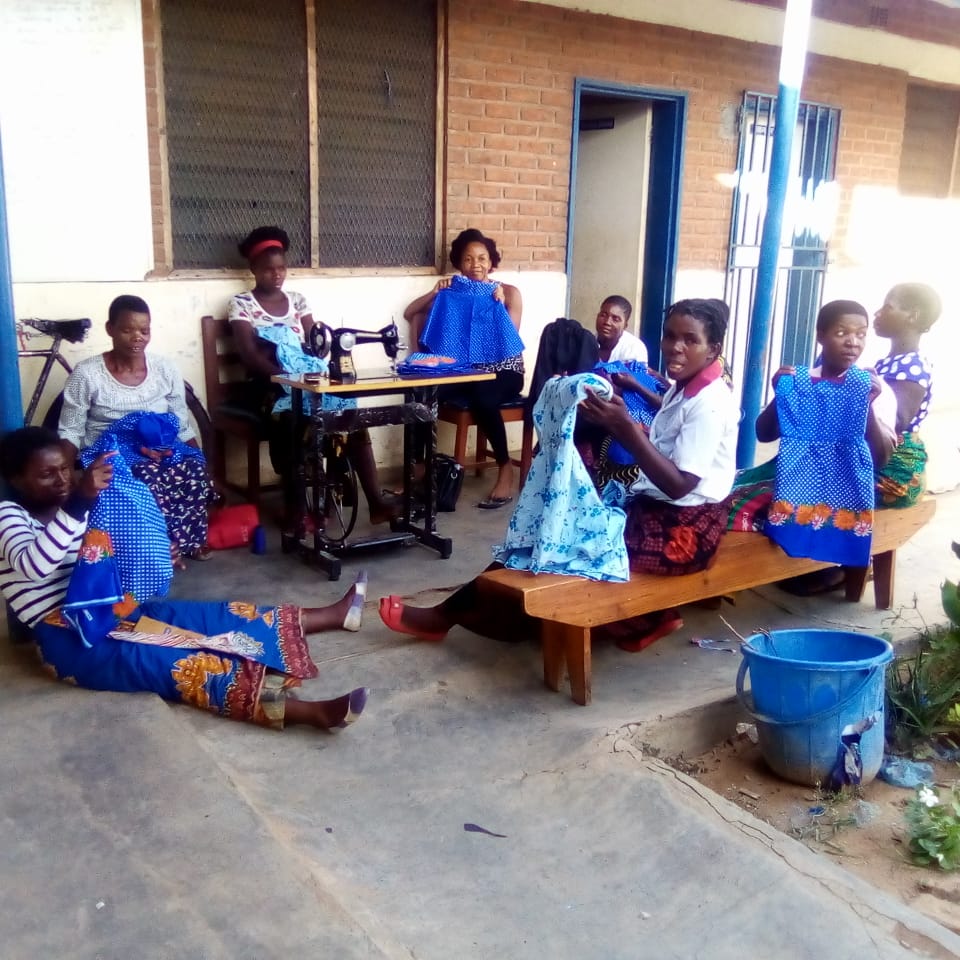
Before the implementation of this project, many women in the community sought to diversify their income. The women from the Kachindamoto area had attended numerous training sessions to learn about mastering physically laborious vocational skills such as carpentry, tailoring, and welding; however, these women did not have sufficient monetary resources nor a place to go to find seed money to begin businesses in these specified fields. During a series of consultations with community members and municipal leaders, the women of the Kachindamoto Women Empowerment Club asserted that they wanted to work together to obtain materials and small machinery to begin a business in producing and marketing their crafts. This idea became a plan that included buying crafting materials, planning 3-step (designing, production, and marketing) training courses in knitting, embroidery, and sewing, and materials needed for certificate exams to ensure the participants’ full understanding and mastery. With eagerness, The Hunger Project Epicenter Program Officer, T / A Kachindamoto, and the Assistant Community Development Officer, and GVH Huwa all contributed to the success of this project.
Unfortunately, they expedited the budgeting process, so the pricing and fund allocation in the original budget was inaccurate. Therefore, the community was not able to purchase every desired item for this project, and from this, learned the importance of planning more specific money allocation in future projects and in business. Also, during the beginning of this project’s implementation, the group’s treasurer left the Huwa area for a short time with the community cash contribution. Although she did not spend any of it while she was away, the group was not able to buy materials, such as knitting yarn and cloth, in the timeframe they expected. After this experience, the group decided to implement a different treasury system, which would allow multiple people to handle the group funds. Succeeding the treasurer’s return and refocusing on the project’s continuation, the group acquired 3 additional sewing machines (on top of the 2 they already owned), 15 knitting wires, and one embroidery machine, and attempted to purchase a knitting machine, but it was out of stock. The inability to purchase a knitting machine became a teaching moment for all working on the project, including Bertha, as they worked to embrace the change to their plans. After numerous delays due to major events such as community rituals, funerals, and weddings, the community pressed forward with the project with a newfound understanding that not every beneficiary has to attend for a meeting to occur.
After buying the necessary materials, all planned training sessions occurred, which allowed all trainees, both highly experienced and inexperienced, to learn, improve their skills, and craft with a variety of materials. Despite a variety of setbacks, the group persevered and produced handknit blankets, facemasks, dresses, blouses, and baby boots.